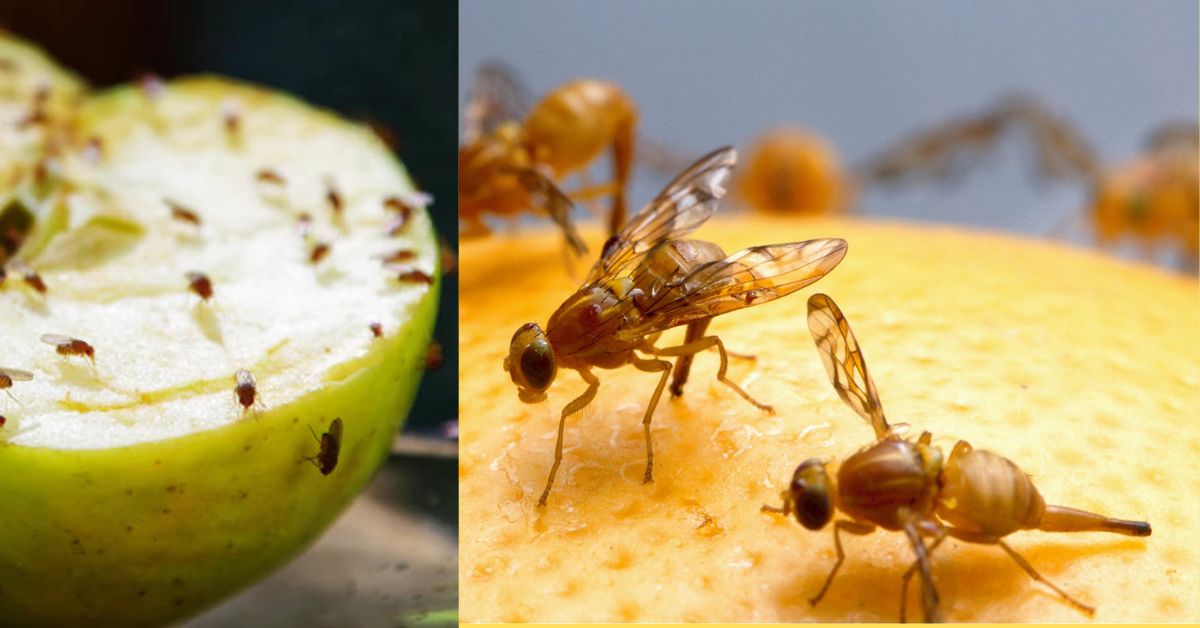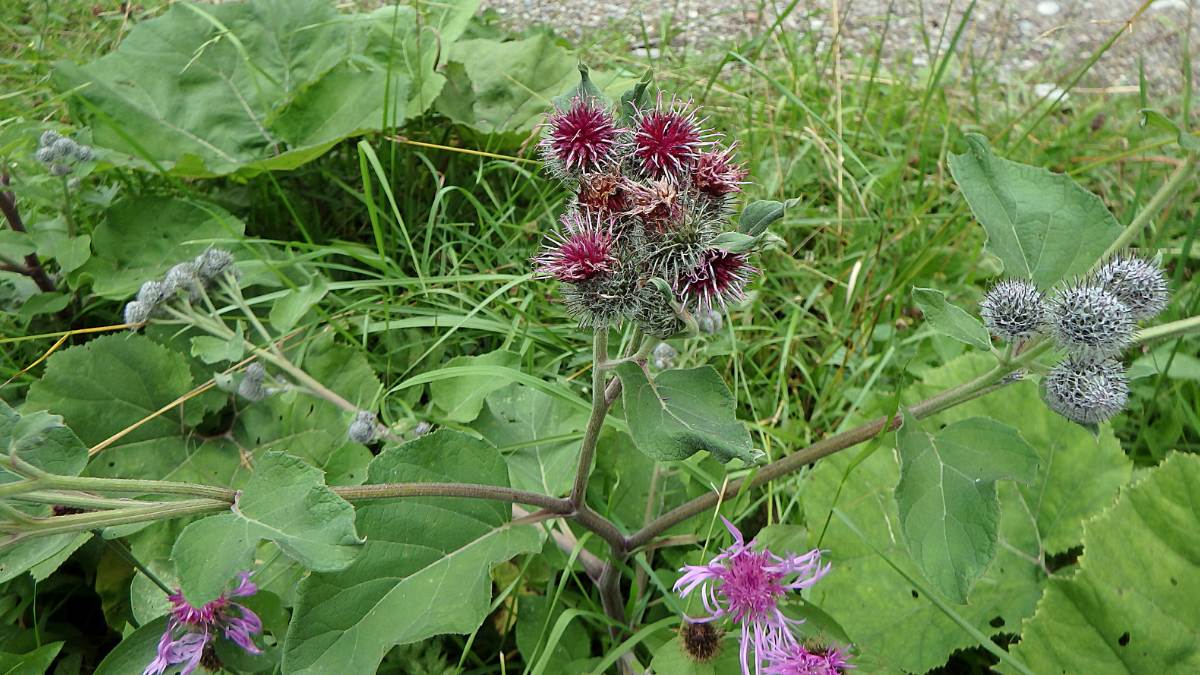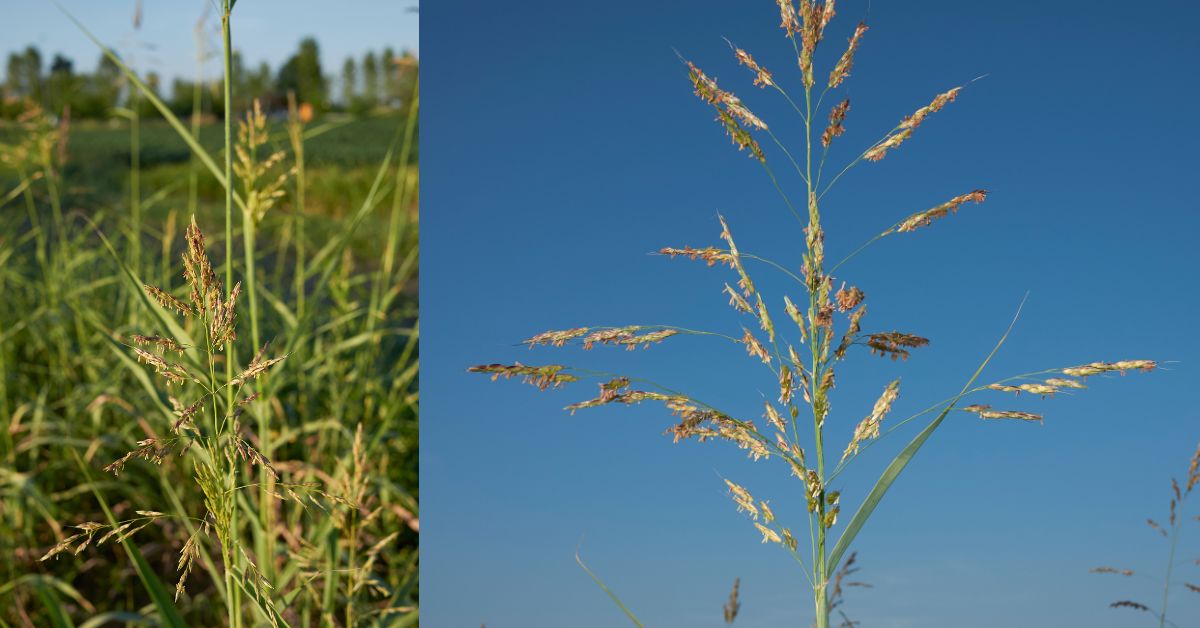Have you ever left fruits on your table and the next time you come to check on them, a whole swarm of tiny flying beasts is all over them? Or you forgot to cover your waste bins, and when it is time to dispose of the garbages, you are greeted by these fruit flies that seem to scowl at you for disturbing them?
Fruit flies (Drosophila melanogaster) are those little insects that you simply see flying around, which are colored brown and therefore are not afraid of people. Sometimes, it seems that it is hard to get gone them. They fly around and may even fly up your nose and possibly into your mouth.
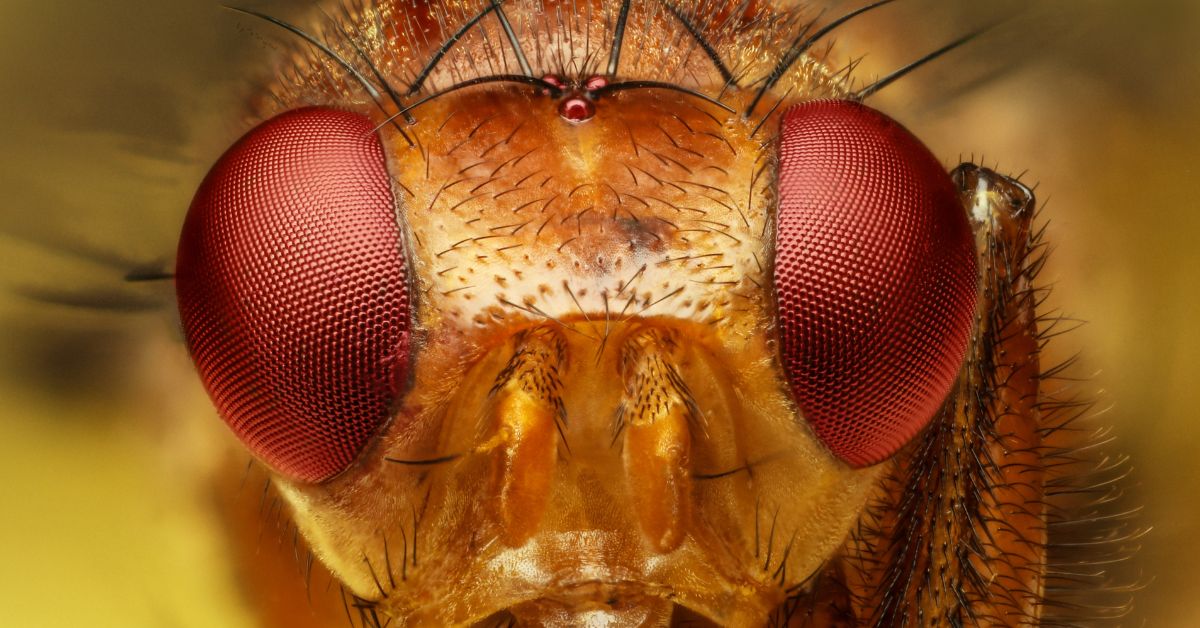
They are regarded as a pest. They can carry harmful bacteria, which in turn can be transferred into your foods or other household items that they come in contact with. They can lay as many as 500 eggs at a time and can complete their life cycle within a week.
Keep reading to choose one of the actionable and safest methods here to get rid of fruit flies in 1 day or overnight. If you are already fed up with the disgusting look of your food, this article will be your ultimate source against fruit flies!
How To Get Rid Of Fruit Flies in 1 Day
Fruit flies are a nuisance, you could try to clean, scrub, and disinfect your whole house, but they don’t seem to go away. You may have already tried to spray insect repellents on them, but their population doesn’t seem to get back to zero. Here I will show you some of the most effective and inexpensive ways to get rid of them.
Locate their breeding grounds or the areas in your houses where they gather. These are usually part of our house that is dark, moist, and where they can readily obtain their food such as leftovers or rotting fruits and vegetables.
(Strongly recommended video -1)
What causes a fruit fly infestation?
To get to the bottom of the issue, you need to first identify the reason(s) for the fruit fly infestation in your house in the first place. These annoying little insects will most likely hitch a ride into your home on fruits and vegetables that you have just purchased from a supermarket or farmer’s market.
There is no foolproof method for determining whether or not flies have already deposited eggs in the food you eat; but, thorough washing of fruit can assist get rid of adult flies. And if they locate a sufficient food supply in your kitchen, they will not hesitate to set up shop there if given the opportunity.
You might read this: How To Care For Peace Lily Indoors (Spathiphyllum)
Once they have entered your home, fruit flies will immediately begin searching for ripe fruit and vegetables, in addition to any decaying matter, such as trash, in which they can deposit their eggs. Fruit fly eggs normally hatch within a day or two, and the larvae spend the following week feeding on ripe fruits as they consume them.
In around a week’s time, they will have matured into adult fruit flies, at which point they will begin to lay their eggs. Because of their fast reproduction rate, getting rid of fruit flies can be a challenging task.
Can fruit flies make people sick?
Inexplicably, despite the fact that the thought of eating fruit flies or food that has been contaminated by them is repulsive, there are no particular illnesses that are linked to unintentionally consuming fruit flies or eating food that has been contaminated by fruit flies. People can become ill from eating spoiled food for a variety of reasons, but it is not because of the fruit flies themselves.
Are fruit flies a source of illness and bacteria?
Fruit flies in and of themselves are not linked to any particular ailment; nonetheless, there are some worries over the possibility of fruit flies transporting germs from one location to another and contaminating food with infectious microbes.
Additionally, the transportation of food from one nation to another has been shown to facilitate the migration of fruit flies from one region to a distant place. It has been hypothesized that infectious microbes can be transported from endemic regions to people that are not resistant to infectious illnesses by this method and that this results in the spread of infectious diseases.
Identification: Are they real fruit flies?
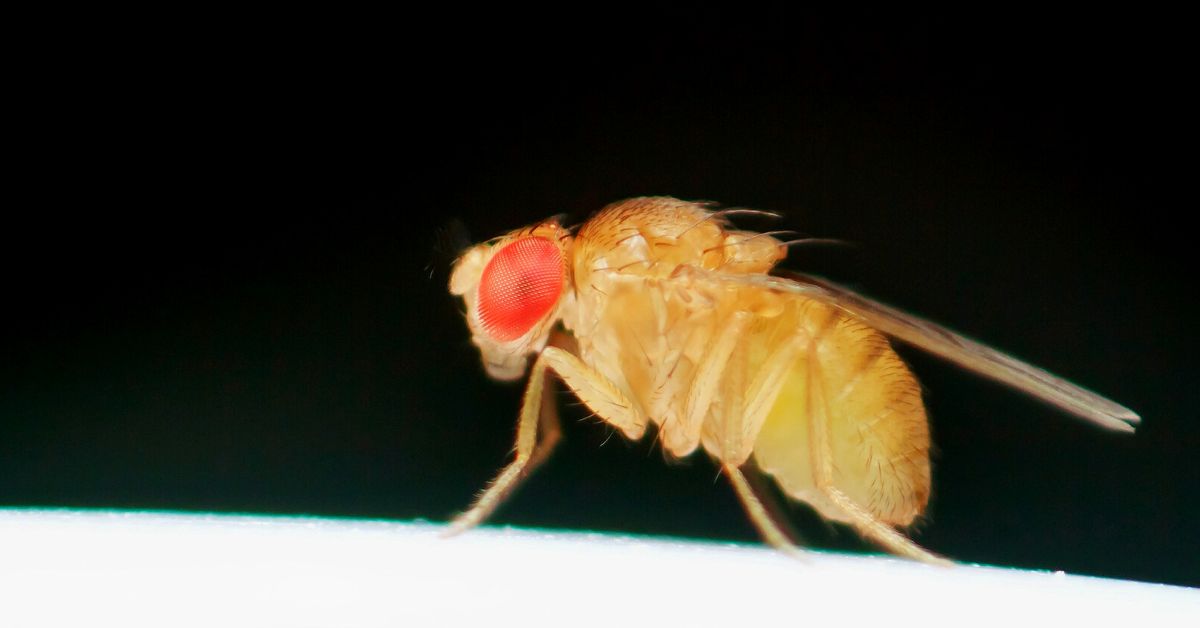
Of course, there is always the possibility that the flying insects you think are gnats are in fact fruit flies. Fruit flies are little, brown bugs with red eyes; nonetheless, it is simple to mistake them for fungus gnats or drain flies due to their similar appearance.
Black fungus gnats are most frequently observed milling about the soil of indoor plants, as this is where the females of the species deposit their eggs. Drain flies, on the other hand, are most frequently discovered around sink drains (surprise!) or garbage disposals.
These flies have bigger wings formed in a V and almost resemble miniature moths due to their appearance. In order to stop fungus gnats and drain flies from laying eggs, you will need to clean the areas where they congregate, but generally speaking, the same kinds of traps will be effective against both of these pests.
Prevent Fruit flies before they pop up
If your kitchen is neat and orderly, it will be much simpler to prevent fruit flies from settling in your area and making a home there. To get started, clean up any spots that might potentially accumulate food and allow it to rot.
This requires you to either store your waste outside or in a container with a cover that can securely close. Instead of leaving your food leftovers out where anybody can see them, put them in a compost bag and store them in the freezer. This will protect the scraps from going bad. If you suspect that old food has accumulated in the drains of your sink, you should flush them out.
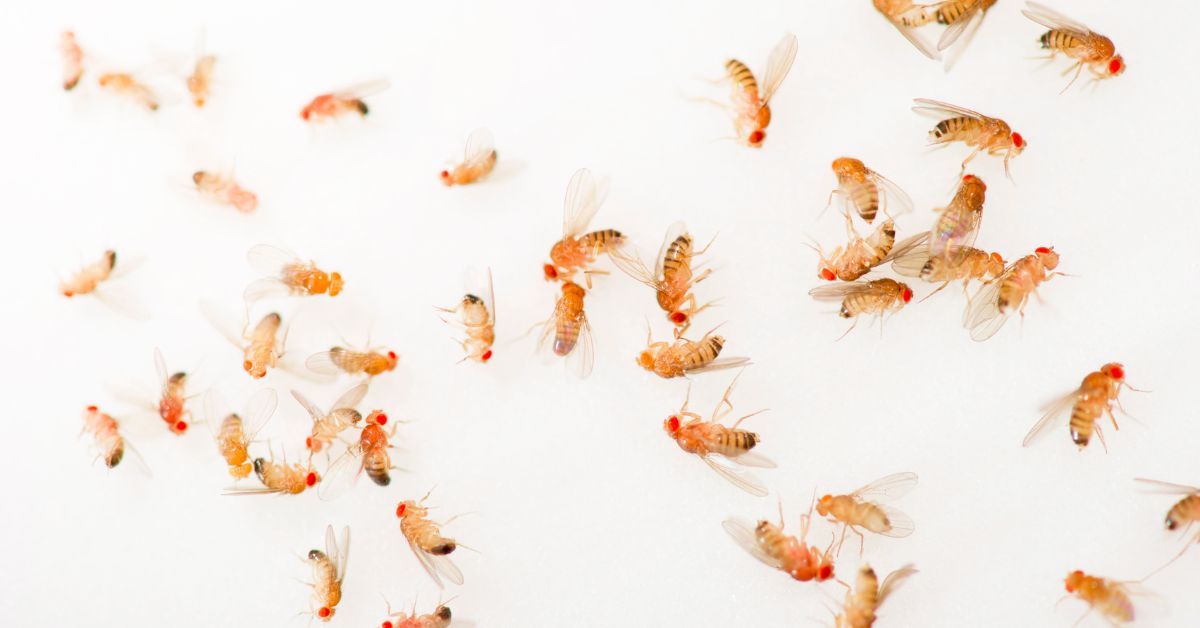
If you store your fruits and vegetables on the counter where they would typically be kept, you should consider relocating them to cooler locations or covering them. This is especially important for fruits that have a high sugar content and mature fast. If you want to keep your bananas and tomatoes fresh longer, try storing them in a cold drawer or covering them with a dome. Indeed, there are such things as tomato drawers.
Take these preventative steps to reduce the likelihood of obtaining fruit flies in your home and cut off their access to their food supply as well as stop them from entering your home.
- Throw out overripe produce
- Store fruits and veggies in the fridge
- As soon as you arrive home, wash your vegetables to get rid of any possible eggs or larvae.
- Take out the trash frequently.
- Clean up spills as soon as possible, especially those involving fruit juice or alcohol.
6 Approaches on How to get rid of fruit flies using a DIY fruit fly trap
(video 2)
A fruit fly trap is a very efficient solution, and it can be constructed in as little as five minutes. This makes it a very convenient option. These do-it-yourself traps may be modified to make use of items that are already in your possession, which eliminates the need to make a hurried trip to the local supermarket or hardware shop.
To begin, you will want to make sure that the pests in issue are neither fungus gnats, which are attracted to overwatered houseplants, nor drain flies, which are found around drains or garbage disposals. Drain flies are also a possibility. Check out our comprehensive advice on how to get rid of gnats if you’re having trouble with those pesky insects.
Flies that feed on fruit are often either light brown or dark brown in appearance, and they have red eyes. If you are certain that you have correctly recognized the creatures, then you should give one of these proven treatments a go in order to get rid of fruit flies in your kitchen.
Make a fly trap using a clean, odorless jar to get rid of them.
First, put some chunks of ripe bananas inside (you could also try to use some other sweet-smelling fruits such as jackfruit).
Cover with an aluminum foil or plastic the mouth of your container, making sure that there will be no spaces in the sides where the fruit flies could escape; in other words, seal it tightly, and it should be well-fitted.
Next, using a pen or a pencil, poke 4 to 5 holes in the aluminum or plastic, making sure that the holes are big enough for the flies to come in but small enough not to let them out.
Finally, place the jar in the places where there are a lot of fruit flies. The smell of the fruit will attract the flies to get inside of the jar, and once they get in, they will have the trouble getting out; that is why it is necessary to ensure that your jar does not have any smell that will overpower that of the fruit you are using.
You might read this: How To Grow Cilantro Indoors (Coriander) To Have All-Season-Fresh Herb Garden
You could check after a few hours, and you will already see a lot of them trapped in the jar. If you have a real serious fruit fly problem, you could let the jar set in for more than 24 hours and after which put, dispose of its contents after spraying it with insecticides and thoroughly clean the jar and repeat the whole process until you are sure that there are no fruit flies left.
How To Kill Fruit Flies Naturally
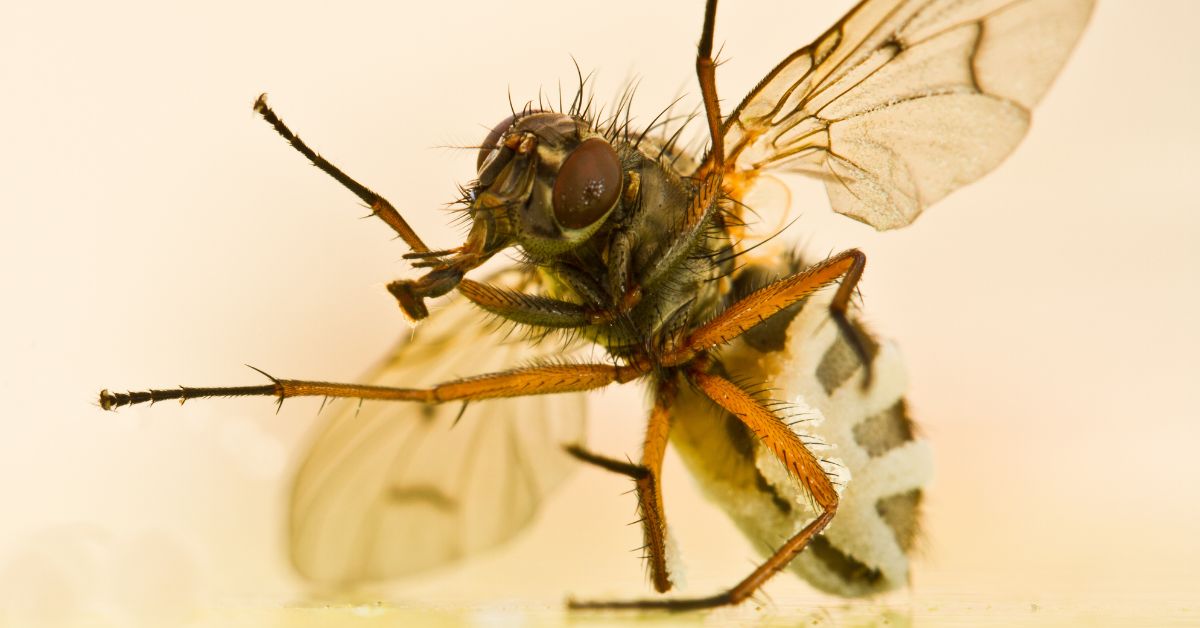
Using a mixture of oil, lemon grass, and water
Mix about 8 drops of lemon grass oil with a liter of water. Pour the solution into any spray bottle you have handy. To begin getting rid of fruit flies, simply spray the solution on them, and they’ll die instantly. You can also spray the liquid in and around their breeding grounds for more breeding.
Use apple cider vinegar
To make an apple cider vinegar spray, put the vinegar in a bowl or glass, cover it with plastic wrap, secure the sides with a rubber band, and make a few holes in the spray’s top. The vinegar will entice the fruit flies, and once they’ve entered the container, they won’t be able to get out due to the barrier created by the plastic wrap.
Killing Fruit Flies with Vinegar And dish soap
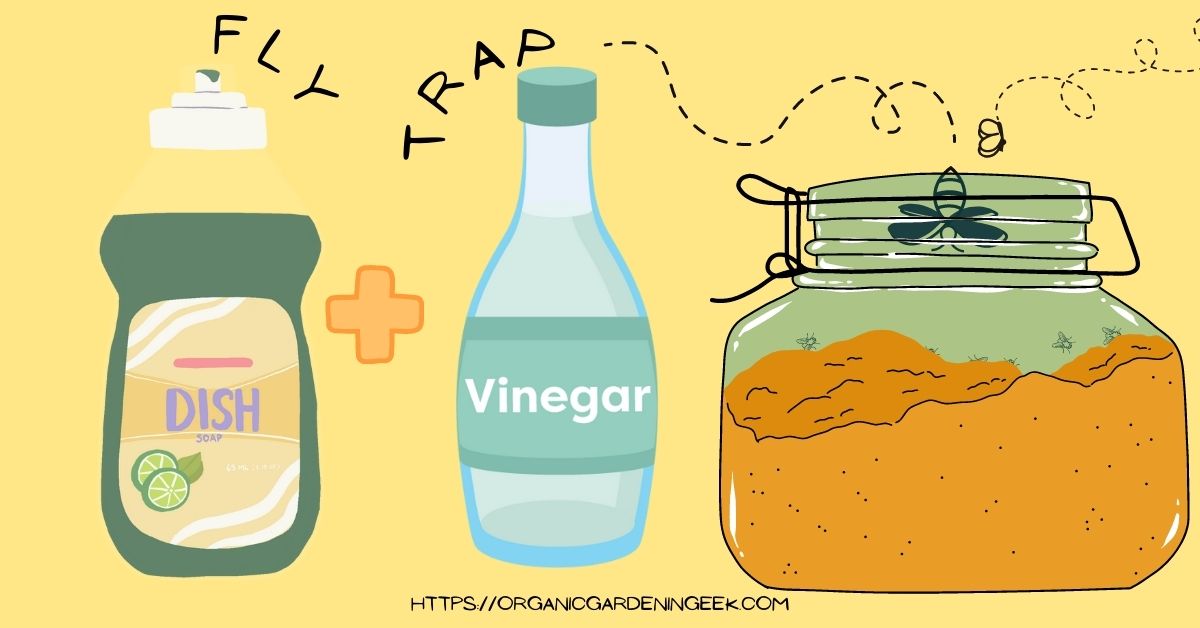
The best method to stop fruit flies from producing additional children is to keep your kitchen as clean as possible, but you should obviously also get rid of any other insects that are flying around your house as well. (You could just wait for them to die out, but given the appropriate conditions, they can live for two weeks or even longer.)
One of the most efficient approaches to achieving this objective is to make use of a fruit fly trap that you construct yourself by making use of things you already have in your pantry.
Vinegar works quite well to kill fruit flies in the house. Put a soap solution that has been diluted with water and a significant amount of vinegar that you have mixed together in a jar. They are attracted to the smell of this mixture, so they’ll begin to fly into the jar.
Once they are in the jar, the soap water gets them stuck and drops them to the bottom. The drowning will kill fruit flies once they hit bottom.
Here are the steps:
- Apple cider vinegar (also known as ACV) should be poured into a small basin.
- Then mix in a few drops of dish soap.
- Because it smells like fermenting fruit, apple cider vinegar is more effective at getting rid of fruit flies than regular white vinegar. (Red wine vinegar is another option, although it is often more costly than apple cider vinegar.)
- After heating the combination in the microwave for approximately twenty seconds to intensify the scent of the vinegar, place the bowl in an area that is populated by a large number of flies.
- The odor will entice the insects to come closer, and because the dish soap will lower the surface tension of the liquid, the insects will become trapped and eventually drown.
- You’ll start to see results in just a few hours.
- When the solution begins to get overrun with dead flies, discard it and start again with a new batch.
The Oil and Ammonia method
This works really well to kill fruit flies around the drain or sink area in the kitchen. Ammonia works to eliminate all particles in the drain, including fruit flies or anything that attracts them. Pouring vegetable oil around the drain coats the flies in oil which stops them from breeding or flying away, for that matter.
Use a bottle/jar to trap get rid of fruit flies.
This is not a really good way to get rid of fruit flies, but it works for some folks. Simply place a ripe piece of fruit in the jar, and it will slowly attract fruit flies over time. Once you’re satisfied with the number of flies in the jar, shut it and let them out somewhere far from your home. This way, you don’t have to kill fruit flies if you don’t want to.
How to kill fruit flies using chemicals
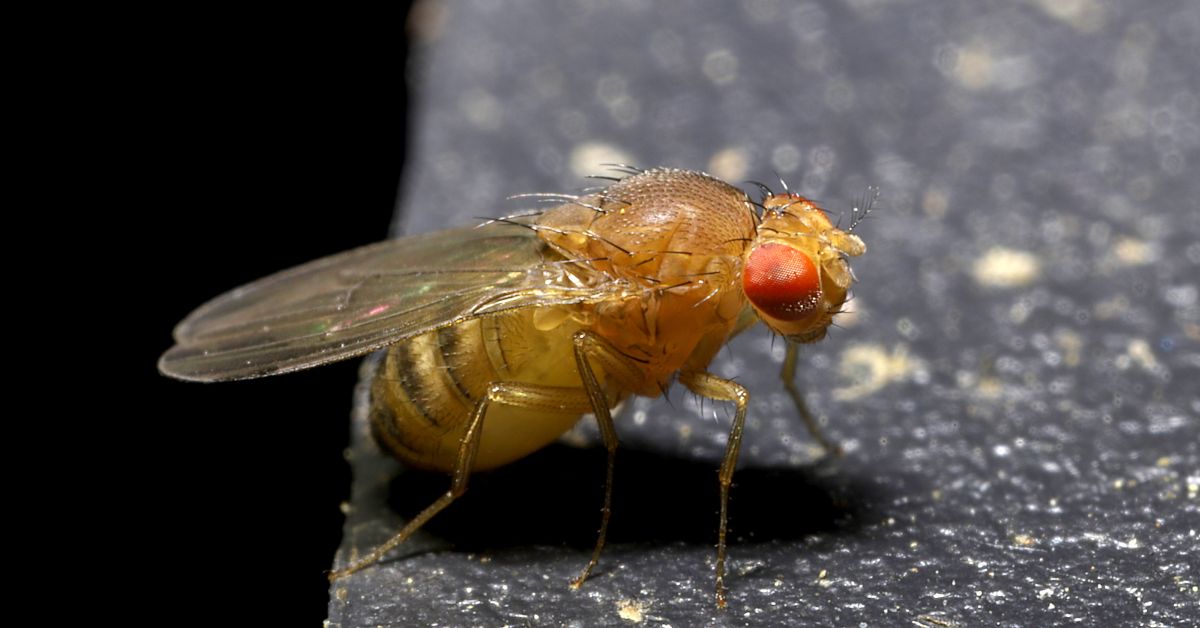
The Fly Paper
This method is considered one of the oldest ways to kill fruit flies. Because the material that the paper is comprised of is rather sticky, the fruit flies become immobilized whenever they come into touch with the paper.
Sprays
Different kinds of sprays have popped up in the market for killing fruit flies. The chemical substances in these sprays kill the fruit flies instantly in contact. The downside to using this method to kill fruit flies is the fact that the chemicals could also be hazardous to house pets and young kids.
The Bug Zapper
This product is designed to kill fruit flies using light and electric current. The fruit flies are attracted to the tube light in the device center. What kills fruit flies is the net mesh that zaps them with the electric current before they can land on the light.
Old wine or beer
Similar to how they are drawn to the smell of vinegar, fruit flies are drawn to the aroma of the wine. You can try to catch the flies by setting out an open bottle that still has some liquid in it; the bottle’s narrow neck will do the trick.
Another method suggested by the Old Farmer’s Almanac for luring fruit flies into a homemade trap is to use a beer that has gone stale. To increase the likelihood of success with either option, add a few drops of dish soap.
Using Traps to kill fruit flies
All the above methods work as good fruit fly control and elimination methods. However, the best way to kill fruit flies is by using a trap. Using a trap to kill fruit flies helps you avoid having to deal with all the headaches and messiness associated with some other methods.
There are different traps that claim to work great for killing fruit flies. I tried them all and wasn’t really impressed with any of them. I was about to give up on traps until I found one that worked like nothing else I’d ever tried before.
Kill Fruit Flies by knowing their life cycle
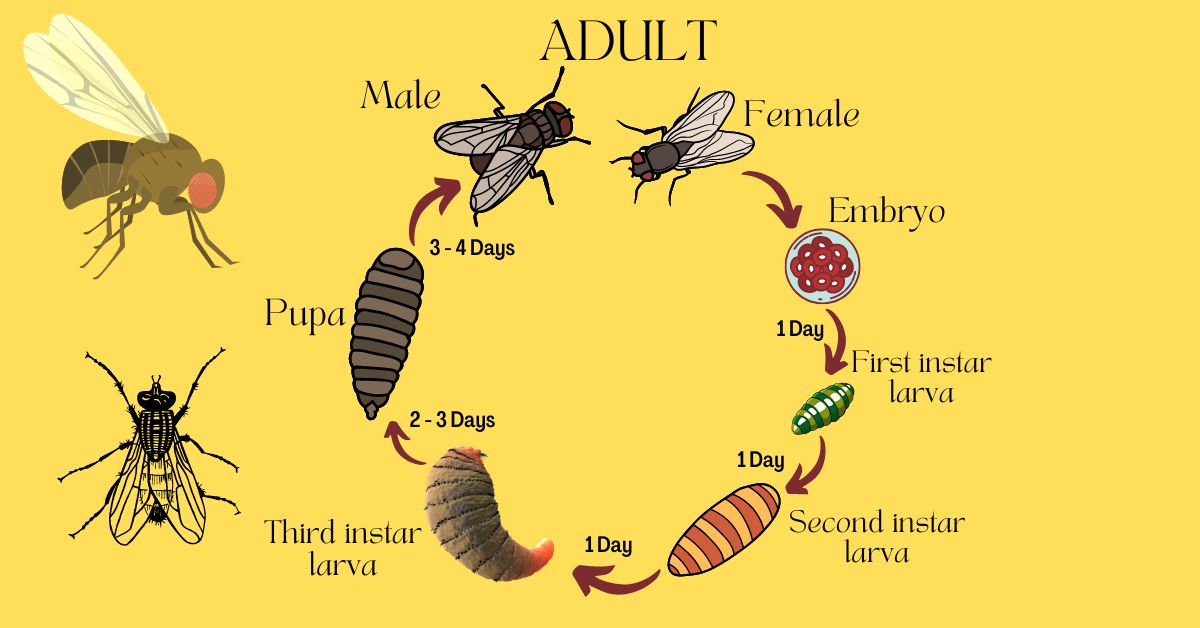
In order to mature into adults, fruit flies go through four distinct life phases, each of which presents its own unique challenges and opportunities for elimination. However, before you start getting rid of fruit flies, you may first need to have an understanding of the many stages that they go through.
Egg, larva, pupa, and adulthood are the four stages that make up the life cycle of a fruit fly. The following is a synopsis of each step that a fruit fly goes through during its life cycle.
Egg, larva, pupa, and adulthood are the four stages that make up the life cycle of a fruit fly. The following is a synopsis of each step that a fruit fly goes through during its life cycle.
Stage 1: Egg – Fruit flies only have a two-week lifespan, yet during that time, a single one can produce up to 500 eggs. Fruit flies reproduce so quickly that it is quite difficult to destroy them and get rid of them right away. Fruit flies will only lay their eggs on the surface of moist, organic items due to the nature of their eggs.
They are frequently observed around rotting fruits and vegetables because of this. This is the weakest area where fruit flies may be eliminated.
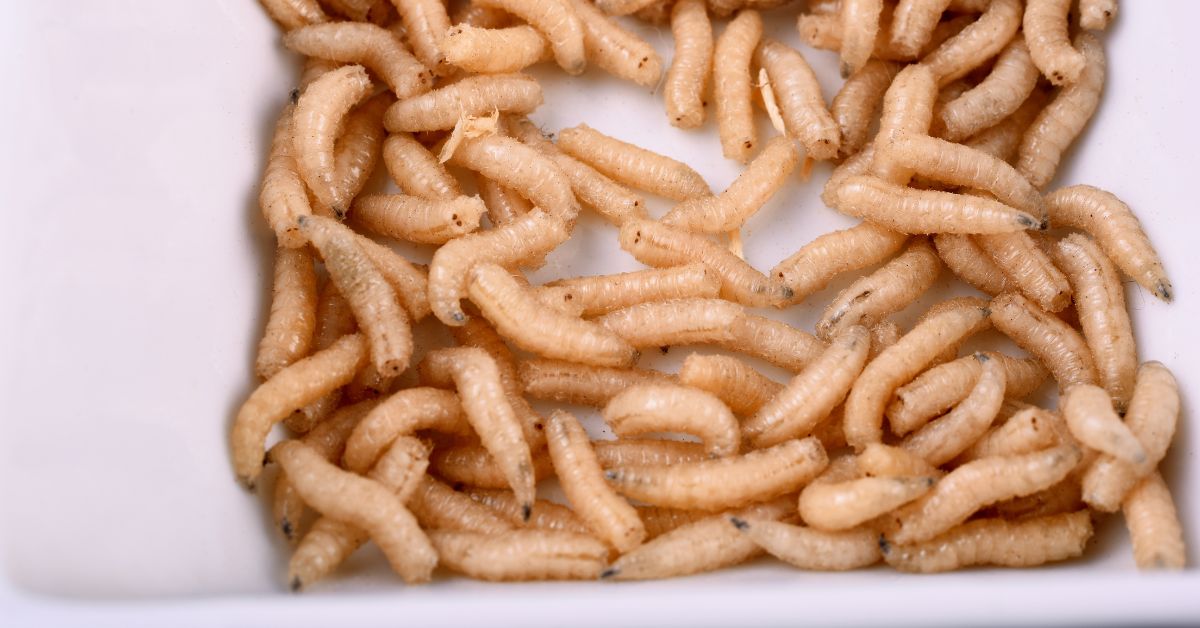
Stage 2: Larva – About 24 hours after the fruit fly egg has been laid, this stage begins. Around this time, the fruit fly will emerge as a larva and start to acquire shape gradually. In this step, discover natural fruit fly control methods.
Stage 3: Pupa – Take into account the fruit flies’ last developmental stage, when they acquire their wings and color. Once fruit flies reach this stage, it is more challenging to destroy them since they may now fly around your home. Don’t worry, however… Even if fruit flies have reached this stage, I have a simple trick that I’ve done to get rid of them.
Stage 4: Adult – The fruit fly is now fully developed and regarded as an adult capable of reproduction. They don’t waste any time in doing so since, once they reach this stage, they may start reproducing in just two days, making it challenging to manage fruit flies.
Kill fruit flies while eliminating breeding grounds
The fruit fly trap I mentioned above is the best way I’ve found so far to kill fruit flies; however, they’ll keep coming back. As with anything, the best offense is defense. Your defense, in this case, would be eliminating the breeding grounds, so you don’t have to keep killing fruit flies. But doing this will also kill fruit flies in their earlier stages.
How to eliminate breeding grounds to not kill fruit flies again
- Frequently dispose of waste that is damp.
- Throw away or store in the refrigerator any fruits or vegetables that have begun to decay.
- Check your houseplants for any sign of wetness.
- Make sure there aren’t any bits of food stuck in your drain by inspecting it.
- Regularly wring out the dish towels, the damp mops, and other wet items.
If you do these things regularly, you will find that you no longer need to kill fruit flies on a constant basis.
You might read this: 10 Best Chipper Shredders for Yards In 2022: The Ultimate Guide To Pick One For Composting
What’s the difference between fruit flies and gnats?
When you see what appear to be little flying black bugs, the first thing you should do is determine what kind of bug it is. Fruit flies and fungus gnats are frequently mistaken for one another because of their striking similarity. Fruit flies can range in color from a light tan to a reddish-orange and brown, whereas gnats are often gray or black in color.
Fruit flies have a preference for overly ripe fruit and other types of produce, and they are most successful when fed high-fructose foods. On the other hand, fungus gnats are only found in soils and on plants; therefore, if you believe you’re seeing those, the problem could not be in your fruit bowl at all.
Are there any other insects to blame? You may get some useful advice on how to get rid of gnats, carpenter ants, and flies in drains by following the links provided below.
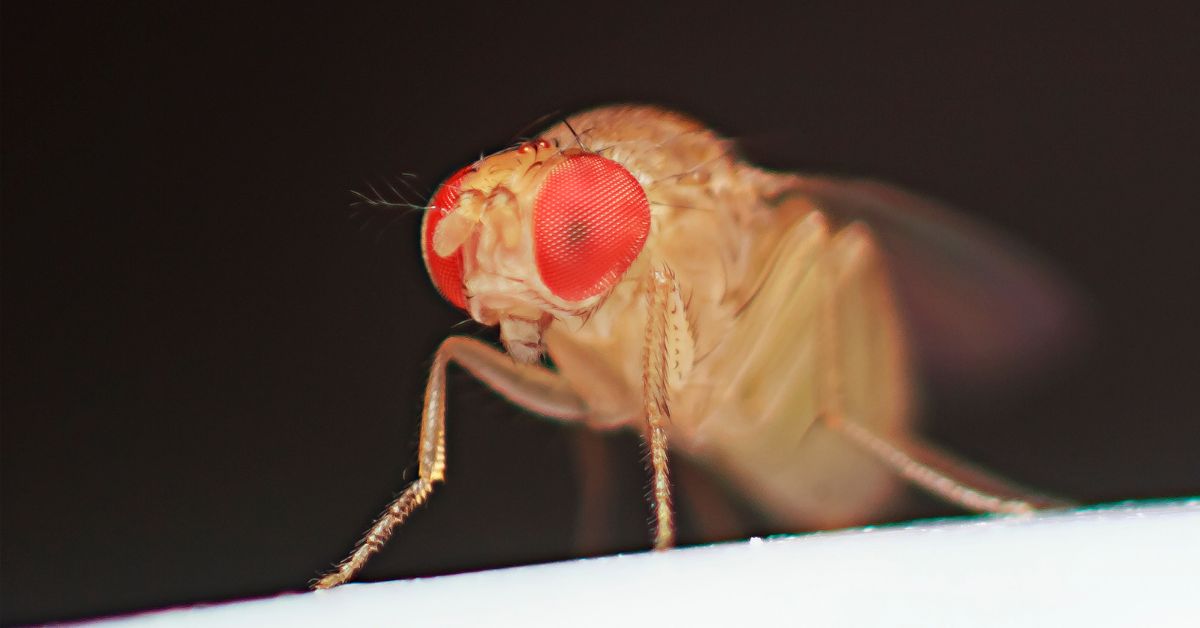
FAQ
What causes lots of fruit flies?
Fruit flies are mostly drawn to fermenting foods that are wet. This includes fruits and vegetables. On the other hand, they are also attracted to items like drains, garbage disposals, empty bottles and cans, trash bags, and cleaning cloths and mops. In essence, they are driven to places with food waste and settings that are damp.
How do you get rid of fruit flies in one day?
Fruit flies are able to enter, but they are unable to leave by flight. There are commercially produced traps that contain alcohol, or you may build your own spray by combining isopropyl alcohol and water in a separate container.
If you are searching for a solution that contains alcohol, there are options. The flies should perish as soon as they come into touch with that.
Why are there so many fruit flies in my house?
The most likely explanation is that you have some fruit in your home that has gone bad due to being overripe. Fruit flies are attracted to sweet fruits like bananas, apples, and many more, which is where they get their name from. Fruit flies are drawn to fermented foods and drinks like pickles and beer just as much as they are drawn to fruit.
How do you get rid of fruit flies overnight?
You may either fill them with boiling water or cover the tops of the containers with a transparent plastic food storage bag and leave it like that overnight. Adult fruit flies will make an attempt to escape via the drain, and when you wake up in the morning, you’ll discover them in the bag. Make traps. Put them in any areas where you have witnessed fruit flies.
How do I get rid of little flies in my kitchen?
As we mentioned above, Wrapping a piece of glass with plastic wrap is one option. Rubber bands should be used to secure the plastic wrap, and the top should have several holes punched in it.
Flies will be drawn to the vinegar that is contained in the glass, and as a result, they will enter the room through the holes. However, because of the dish soap, the flies are unable to settle on the vinegar and instead sink to the bottom of the container.
Can you eat food that fruit flies have been on?
Inexplicably, despite the fact that the thought of eating fruit flies or food that has been contaminated by them is repulsive, there are no particular illnesses that are linked to unintentionally consuming fruit flies or eating food that has been contaminated by fruit flies.
People can become ill from eating spoiled food for a variety of reasons, but it is not because of the fruit flies themselves.
Can fruit flies lay eggs in humans?
There are certain species of flies that do not lay their eggs on people. Instead, the flies will deposit their eggs on other insects (like mosquitoes) or on items (like laundry that is drying), both of which have the potential to come into touch with human skin.
The larvae that emerge from the eggs burrow into the host’s skin, where they continue to develop into full-grown adults.
Can fruit flies nest in your hair?
No. Fruit flies are known to lay their eggs in food sources that are wet. Depending on the type of flies, that means moist soil, the inside of a drain, or a piece of fruit.
